how to actually enjoy every book you read
on honing your reading taste
Hi loves, it’s been a while and I apologise. How June flew by! This newsletter is an article that’s been piling dust in my drafts. It’s a topic I know all too well: the difficulty of feeling lost in the vast expanse of literary worlds and getting into a reading slump because you haven’t read a book that actually *sparked* something in you for ages. But I believe everyone can love (or re-love) reading, as long as they know what to look for in a book.
No matter if you’re an avid reader or not, chances are you don’t actually enjoy reading as much as you used to. It seemed as if every book we read as a child held a certain je-ne-sais-quoi atmosphere. Nowadays, we tick off books on Goodreads like they’re to-do lists. With the world of social media luring us into the trap of buying books solely by their cover, it’s no wonder we’ve lost the art of critical judgement.
A little personal anecdote: after graduating from my degree in literature, I felt out of tune with my reading taste. I had been told exactly what to read and when for years. When that professional guidance fell away, I suddenly no longer knew how to distinguish between the books that I loved discussing in class and the ones that I liked for me. My reading slump was immense. I picked up a book, only to throw it across the room because my zeal for the story dissipated.
(This isn’t to say that what I read was bad. It just wasn’t what I needed.)
Instead of wallowing before my stack of uninspiring books, I took matters into my own hands. I researched how to fall back in love with reading and took a deep dive into the matter: I asked myself questions, read across the genres and used apps to guide me. It took me about two years and my taste will no doubt keep evolving, but I feel like I have a pretty good grasp on my current reading style and I’m confident about every book I pick up now.
PS: even if you already like what you read, this list might be useful to reflect on your current taste. I myself love a little mid-year check-in to see if my reading is still aligned with my feelings.
So you want to hone your reading style?
Here are a few of the first questions I asked myself:
As a child, what books did you gravitate towards? Re-read them or remember what they used to spark in you: which images or feelings have stayed with you?
Have any of your childhood favourite authors written a new book recently?
What movies do you like and what is it about its plot or aesthetic that you love? If you love beautiful cinematography, you might enjoy atmospherical novels (by this I mean ones that aren’t as concerned with plot advancement as much as the building of a feeling or image).
Have you considered looking up a list of all the genres and seeing what piques your interest? I love this encyclopedia of book genres. Go to the library, try out the first few pages of a book in each category that intrigues you and let it surprise you!
If genre doesn’t immediately work, think of a country you love or you’d love to visit and look at translated novels.
Do you think you’d like a book more if it’s based on your own mood, setting, or time of year? Most people crave a cosy book on a rainy day but essential is to figure out what a cosy book means to you - is it a mystery, romance, or perhaps a story about cats?
What do you hope to learn from reading? Maybe you’d love to reconsider your ecological footprint, which could lead you to eco-fiction
Of course, there might not be a clear-cut answer to these questions, but it can give you a variety of pools to dip your toe into.
Read negative reviews too
Before picking up a book, read some reviews. And don’t leave out the negative ones. I love reading them because a negative book review is often a lot more specific about what wasn’t liked than a positive one about what was liked, and that helps you decide if a book is for you or not. There’s definitely a debate out there about whether or not negative reviews should even be a thing, but as long as a review is tastefully written and doesn’t target the author, I think it’s helpful. In my opinion, reviews are not for the authors, but for the reader to make a well-informed decision.
Do-Not-Finish (DNF) books
Don’t be scared of dnf’ing books. I cannot stress this enough. Especially if you’re figuring out your style. I know it hurts to put down a book you already put effort and/or money into, but trust me when I say it’s such a relief to be able to. The faster you dump a book you don’t enjoy, the more likely you’ll find one that actually suits you!
Find a way to take notes
I love having a conversation with my books. I write, underline and dog-ear them, but even if you wish to leave your books untouched, find a way to take notes. Think post-its, bookmarks with sticky tabs attached or a reading journal. Writing down your thoughts while you read helps your critical eye and it deepens your relationship with a book. And if you read with the idea of note-taking, you’ll automatically become more in tune with what things you (dis)like.
Questions to ask when you’re reading:
What’s the setting and what does this mean for the story?
Do you agree with the main character? What is their motive?
What do you think the title means?
Do the characters change from beginning to end?
What is the writer trying to argue?
Are you at any part hooked to the story? Why?
Can you make a connection with something you’ve experienced or consumed in your life?
Use Storygraph
One of the things that helped me most during the end of my journey (and validated what I’d so far figured out) was using the Storygraph app. Unlike Goodreads, Storygraph logs a bunch of things about the books you’ve read and gives you a whole statistical overview of what you enjoy. It can figure out so many things for you, like:
Your reading pace. You can deduce if you prefer slow, medium, or fast-paced books. This can actually make a huge difference in your reading pleasure.
Your favourite moods. Moods can be emotional, reflective, dark, funny, romantic, adventurous, ...
Your top genres. It could be literary fiction, contemporary, fantasy, classics, LGBTQIA+, historical, thriller, … the list goes on.
Your preferred length of a novel. Do you enjoy reading a book in one sitting, a hefty tome in which you can really lose yourself for days on end, or something in between?
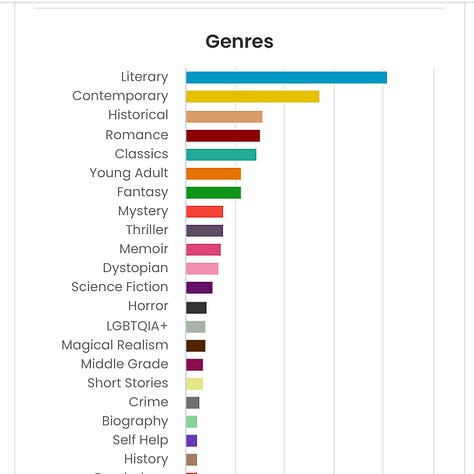
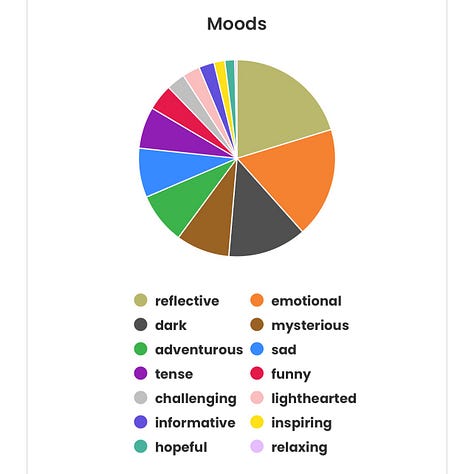
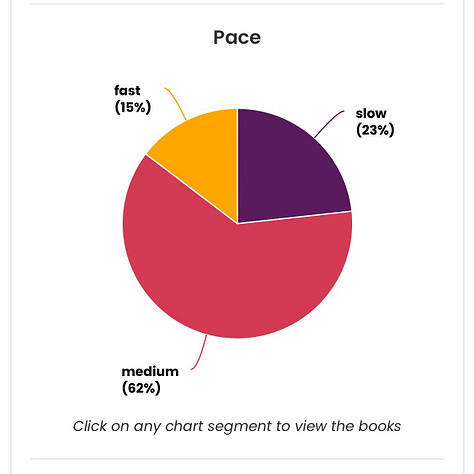
Storygraph also has an amazing AI integration that can recommend books based on your reading habits and can tell you exactly how a specific title aligns with your taste.
Get rid of your prejudices
Don’t be intimidated by classics or “better” books. What you enjoy should not be judged. I feel like genre fiction (sci-fi and fantasy predominantly) tends to get a bad rep because it’s not as “literary” but that’s utter nonsense. Some of the best and most thought-provoking novels (think Jeff Vandermeer) are written in the genre fiction category, as they tend to employ speculative elements that make one reflect on the current situation.
Reading Young Adult is also not a young adult activity by default. I know numerous people of all ages (myself included) who massively enjoy the genre. The same goes for kids’ books, re-tellings and annotated versions.
“Read what you love until you love to read” - Ravil Navikant
Mindfulness isn't only found in meditation but in the general concept of being present and honest with yourself. That includes being honest about the things you read and what you like about them.
It really boils down to: read whatever rocks your boat!



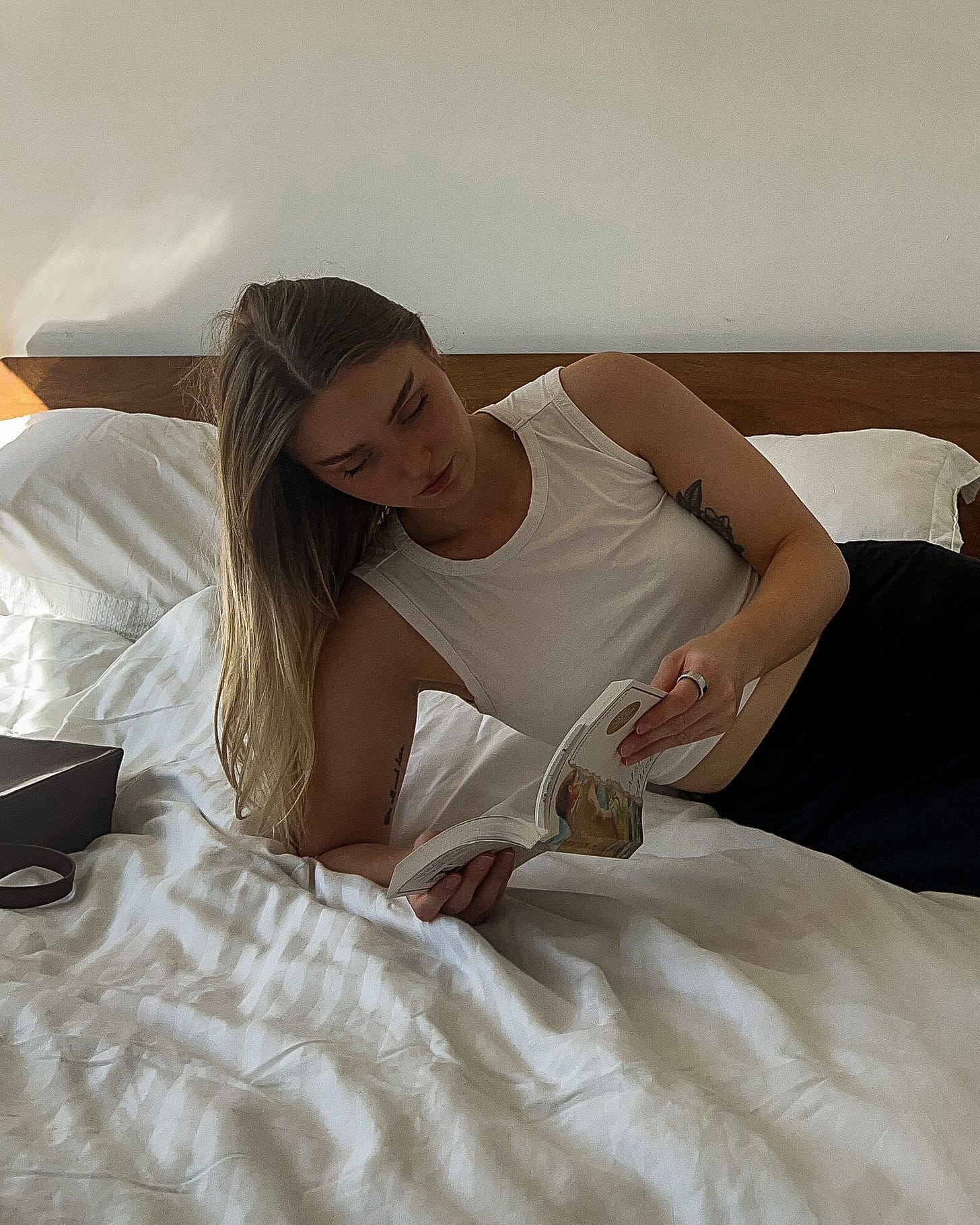
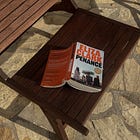
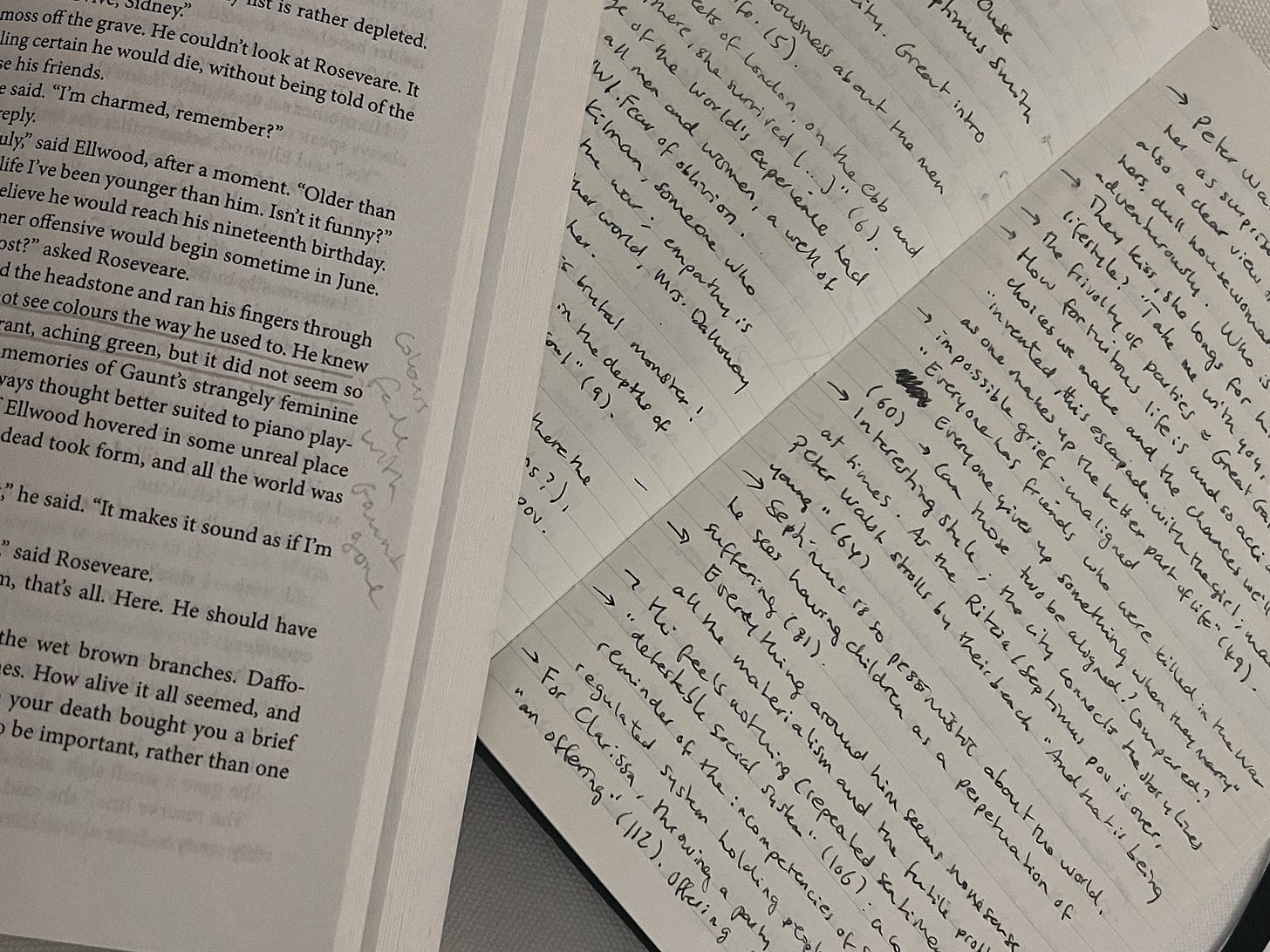
100% agree on everything re: storygraph - I made the switch from goodreads (aka amazon, gross) and changed to storygraph last year. I loooove the AI generated summaries and the charts! the genre breakdowns! I try to get everyone I know to make the switch
I have a close friend who is an avid reader and she shared this advice with me a few years ago and it was literally the advice that got me back into being a reader again. I'm actually on a book right now that has totally prompted a slump and your post is a great reminder I should just DNF the thing and move on. Excited to check out Storygraph too!